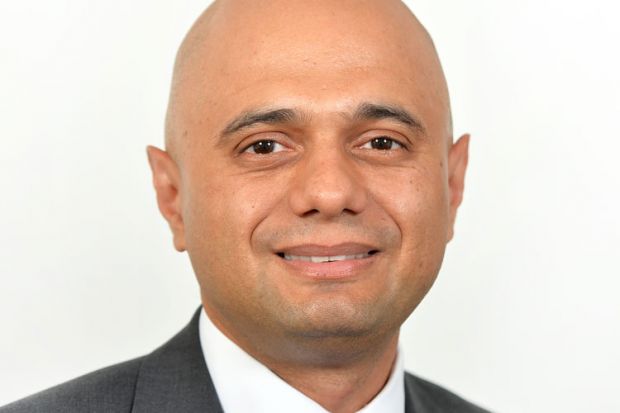The review set up by Sajid Javid, the business secretary, to examine all organisations funded by his department is viewed as potentially bringing radical changes, given his reputation as a “free marketeer”.
Mr Javid has asked management consultancy McKinsey to carry out a review of all bodies funded by the Department for Business, Innovation and Skills.
The review covers the UK’s research councils, along with the Higher Education Funding Council for England.
It comes as government departments identify savings for the spending review, to be delivered on 25 November.
BIS, like all unprotected departments, has been asked by George Osborne to model two scenarios for the savings that they must make by 2019-20: cuts of 25 per cent and 40 per cent.
Asked to confirm the existence of the McKinsey review, yet to be officially announced by the department, a BIS spokeswoman said: “As part of the government’s commitment to reducing the deficit we are looking at how we can cut operating costs across departments and partner organisations.”
Last month, the Institute of Economic Affairs, a free-market thinktank close to Mr Javid, published a paper calling for the scrapping of the research excellence framework, the abolition of the UK’s funding councils and cuts to the research budget.
Some in the sector suggest that BIS has been “secretive” over the McKinsey review, the existence of which first emerged in a blog by James Wilsdon, professor of science and democracy at the University of Sussex.
McKinsey’s review is reported to have so far included asking the research councils to justify why there are seven bodies rather than one. A separate BIS-commissioned review of the research councils is already under way, led by Sir Paul Nurse.
Some in the sector argue that questions about the number of research councils and the existence of quality-related funding have come from government on a regular basis over several years – and the justifications in reply have been accepted to date.
But Jonathan Simons, head of the education unit at the Policy Exchange thinktank and a former head of Open Public Services in the Cabinet Office, suggested that Mr Javid may go further than other ministers.
“Efficiency savings and cutting red tape are staples of any secretary of state’s toolbox during a spending review as a way of squaring a circle of cutting spending without cutting programmes,” said Mr Simons.
“But there are reasons to expect this might produce more than the small nuggets it usually does. Firstly, because Mr Javid has a reputation as a free marketeer and advocate of small government. But also, because there really aren’t that many places within the BIS budget to look for the kind of dramatic 25 per cent to 40 per cent savings that Treasury will want to see.”
Nick Hillman, director of the Higher Education Policy Institute and a former special adviser to David Willetts as universities and science minister, said it appeared as if BIS had been “completely caught by surprise” when the existence of the McKinsey review emerged in public.
He suggested that it would be “at the quick and dirty end of the spectrum” in terms of reviews.
Register to continue
Why register?
- Registration is free and only takes a moment
- Once registered, you can read 3 articles a month
- Sign up for our newsletter
Subscribe
Or subscribe for unlimited access to:
- Unlimited access to news, views, insights & reviews
- Digital editions
- Digital access to THE’s university and college rankings analysis
Already registered or a current subscriber?




